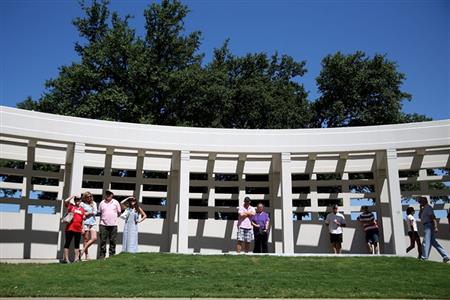
You may have heard of geocaching, a high-tech treasure hunt; geocachers, often just called “cachers,” like to say they “use multi-million-dollar satellites to find Tupperware in the woods.” And actually, that’s pretty accurate.
Geocaches are all around you. You've probably parked your car next to one more than once and never known it. They exist in the woods, in urban settings, even at the bottom of the ocean and the top of Mount Everest. In fact, there is a geocache circling the Earth right now aboard the International Space Station.
A geocache is usually a container, often hidden in plain sight, that at a minimum must contain a log that the geocacher can sign to prove he or she found the cache. Geocaches are searched by geographical coordinates — latitude and longitude — and are cataloged on websites dedicated to the game. The most common one is geocaching.com, but there are others. Once you find and sign a geocache, you can log the find on the website using a free or premium account.
Sometimes a geocache can be virtual, where no actual container exists; only a location. It can also consist of several stages or locations, or it can require a math, word or another type of puzzle to be solved in order to view the coordinates.
Anyone can go geocaching (pronounced geo-cash-ing) with nothing but a smartphone and a free app. It’s easy and suits all ages. In an era of COVID-19 restrictions, geocaching is a good way to leave the house for the great outdoors while exploring your city.
Every geocacher has a certain number of “favorite points” they can use to show extra appreciation to the cache owner for a hide well done. Many of the Dallas geocaches with the most favorite points are JFK-related. The Dallas cache with the most points is GC3710, aka The Grassy Knoll. This one is a virtual geocache, so there isn’t a physical geocache container at all — it’s the location itself that you’re looking for. To log a “find” for The Grassy Knoll, you must read the historical text located at Dealey Plaza and identify a particular word that you will find there. Alternatively, you can upload a selfie showing yourself at the location. All the instructions are on the geocaching.com website.
There is also a series of geocaches dedicated to the 50th anniversary of the JFK assassination (which was in 2013) called JFK50GT— the JFK50 “geotrail.” The JFK50GT series of geocaches takes you on a journey to 14 sites (plus a bonus one in Fort Worth) involved in the story. The description of each geocache in the series is a history lesson in itself, covering the undisputed facts and largely staying away from the more controversial aspects of the assassination.
Oral surgeon Ted Fields is an avid geocacher and one of the members of FriendsOfTheGeoTrail, the geocaching handle of the account that developed the JFK50GT series of caches.
“The most difficult thing about the project was to make it as informative as possible without imparting any politics into it,” Fields says. “We didn’t want to turn off anyone who had strong opinions, no matter what they were. This would have discouraged them from enjoying the adventure and learning a little more.”
It’s likely that everyone will learn something new about “that fateful day in Dallas” by completing this cache series. On the JFK50GT geotrail, you’ll find physical, multi-stage and mystery geocaches. If you complete the entire series (which you can do at your own pace) you’ll submit a special JFK50GT “passport” with each cache in the series stamped, punched or otherwise notated with proof of your visit to qualify for a special award. It’s an enlightening tour of the events that once earned Dallas the nickname “City of Hate.”
Sometimes a geocache container goes missing due to circumstances such as weather, construction activity or after being found and moved by someone with no idea what a geocache is. Geocachers call those that aren’t educated in the ways of the hunt “muggles,” and when a geocache goes missing it’s often considered to have been “muggled.” When this happens, Fields or his partner David Rives will go to the location and replace the container or otherwise make adjustments to the cache listing on the website so that the finds can continue and geocachers can complete the series.
“Doing maintenance on the caches is an ongoing duty and we try our best to keep them all active,” says Rives, who owns a geocache container and supply business called Drives Cache Closet. Rives also noted that nearly 700 geocachers from around the world have logged a find for at least one of the caches in the series, and over 1250 “favorite” points have been awarded to the caches.
In addition to the JFK50GT series, there are many thousands of other geocaches located all over North Texas ranging from incredibly easy “park and grabs” to caches that can only be accessed by canoe or with expert tree-climbing skills. You can see the ones nearest you by making a free account on geocaching.com and doing a search. Just to give you an idea, there are over 200 geocaches in the downtown Dallas area alone, and every suburb is replete with caches you can find. There are more than 3,000,000 active geocaches around the world on every continent and in nearly every country, which means there’s probably one less than a mile from where you are right now.
FULL ARTICLE IN THE DALLAS OBSERVER - https://www.dallasobserver.com/arts/geocachers-explore-the-citys-history-through-a-high-tech-treasure-hunt-11982713